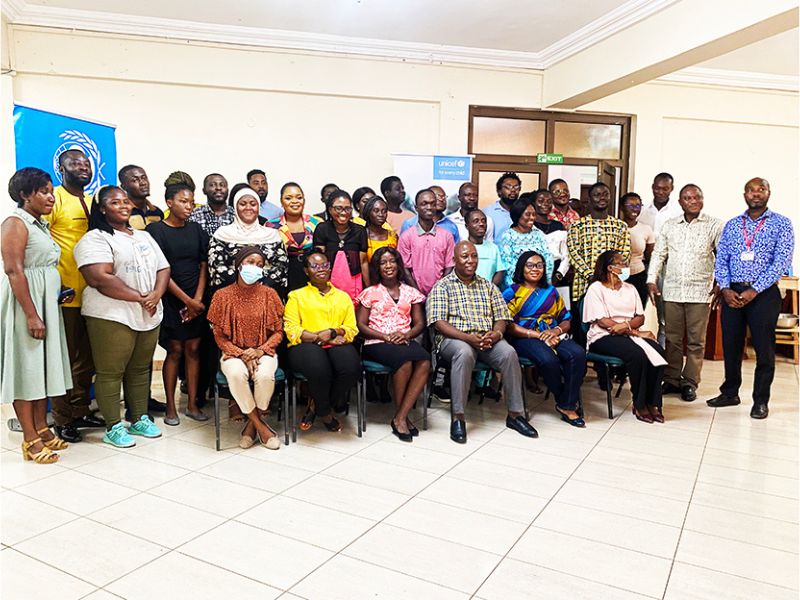
The National Consultant of Hand Hygiene For All (HH4A), Charles Nachinab, has indicated that a survey conducted in Ghana has revealed that 58% of the population, or 18 million out of 31 million people do not have access to basic handwashing facilities.
The figure is based on the 2020 population, with an average household size of 4.7 people and each household requiring at least one handwashing facility.
He stated that by 2030, the Ghanaian population is expected to reach 38 million, adding that with the current trend the research showed that the 18 million people will balloon to 25 million.
He has intimated that the country must work to provide 11,365 handwashing facilities per week over nine years and 4.68 million facilities until 2030, to achieve the universal access to handwashing facilities incorporated in the Sustainable Development Goals (SDGs).
Charles Nachinab, who was making a presentation at a workshop organised for the media by the Ministry of Water Resources and Sanitation in Accra last week, noted that about five million handwashing facilities were needed to achieve universal access.
ROLE OF MEDIA
“From the foregoing, media interest and support for hand hygiene are crucial for thorough dissemination and sustained advocacy, hence this engagement,” he stated.
The day’s workshop, organised by the Ministry and UNICEF Ghana, aimed at equipping media personnel with information on the HH4A initiative.
WHAT IS HH4A
HH4A is an initiative by the World Health Organisation (WHO) and UNICEF that came on the heels of the onset of COVID-19.
It is a call for all of society to achieve universal access to hand hygiene through a three approach; responding to COVID-19, rebuilding after the COVID-19 pandemic and reimagining hand hygiene to become part of the people’s culture.
It identifies 12 settings where handwashing facilities are expected to be available. They are households or homes; schools; child-care homes; healthcare facilities; workplaces; markets; transport terminals; correctional centres; worship centres; refugee camps; eateries and events or recreational centres.
ALL ON BOARD
In a welcome address delivered by Suzzy Abaidoo, the Ministry of Sanitation and Water Resources said all stakeholders, including the media, needed to join hands in order to push the hand hygiene agenda forward.
UNICEF and other representatives of stakeholders who took part in the workshop were in unison in their call on the media, in particular, to play a collaborative role in advancing the course.
Representative of UNICEF in Ghana, Offeibea Baddoo, engaged the media to brainstorm on the role it can play, resulting in the general outcome that media personnel should move the message beyond their various platforms.
The media was told that installing basic handwashing stations was not expensive. The facilitators demonstrated traditional means of access to a basic handwashing facility.
Further, the proper way of washing hands was demonstrated and the workshop ended with a call on Ghanaians to continue to practise hand hygiene even after COVID-19.
The media lamented to the organisers what they observed as the failure of public institutions and facilities to have handwashing facilities or to have them without water, soap, or tissues.
Meanwhile, facilitators urged the media to take advantage of their work and platform to question those institutions about why they did not have such items, rather than leaving it to chance.








